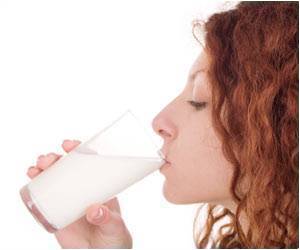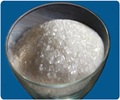What is Artificial Sweeteners?
An artificial sweetener is a sugar substitute with fewer or no calories.
A food additive which has a similar taste like sugar and has fewer calories in comparison to sugar is called an artificial sweetener. Artificial sweeteners are also called sugar substitutes, non-nutritive sweeteners, no-calorie sweeteners, low-calorie sweeteners and the alternative sweeteners.
Some sugar substitutes are synthetic, and some are natural. High-intensity sweeteners are a class of artificial sweeteners, which are many times sweeter than the common table sugar or sucrose. Hence, a small amount of sweetener is required to sweeten food, and it contributes a negligible amount of calories. The Food and Beverage industries use artificial sweeteners to sweeten a range of products in place of sugar.
A huge variety of sugar-free products are available in the market; be it chocolates, soft drinks, sweets, cookies, puddings, ice creams, bakery products, etc. The food labels mentioning “Diet” or “Light” generally indicate the addition of artificial sweeteners in place of sugar.

The US Food and Drug Administration regulates the use of artificial sweeteners as food additives. The safety of the sweeteners is based on the vast body of information, including many toxicological and clinical studies.
Currently, seven artificial sweeteners have been approved by the FDA; acesulfame-potassium, aspartame, luo han guo, neotame, saccharin, the stevia (Rebaudioside) and sucralose. In addition, the FDA establishes Acceptable Daily Intakes (ADI) for each artificial sweetener. The ADI is the amount of artificial sweetener a person can safely consume on an average, every day, over a lifetime without incurring any health risks. It is calculated based on the body weight of the person.
Consumption of artificial sweetener has always remained a dilemma; many studies are being conducted to study any adverse effects like the potential for carcinogenicity, neurotoxicity, long-term toxicity, reproductive toxicity, etc. Several market analysts have found out that Americans do consume a lot of artificial sweeteners. According to a study published by The American Journal of Clinical Nutrition (2003-04), Americans over the age of two years consume more than 550 g per day of beverages and more than 350g of foods with artificial sweeteners.
Benefits of Artificial Sweeteners
Artificial sweeteners are helpful to
Artificial sweeteners are beneficial in the following conditions:
Diabetes Mellitus:
People with diabetes mellitus can enjoy different varieties of food items by using artificial sweeteners in place of sugars. As they face difficulty in controlling blood glucose levels, an alternative to sucrose can help them to regulate the sugar level of their body in a better way.Obesity:
White cane sugar is said to provide 'empty calories'; it lends energy and has no other nutritional value. People who have a high body mass index (BMI) can cut down their sugar intake by replacing natural sugar with sugar substitutes. Those people who have a sweet tooth and cannot resist sugary items can include food and beverages made of sugar substitutes and therefore not add additional calories. This practice can assist in weight loss by limiting energy intake.Dental care:
Sugars and carbohydrates have a tendency to adhere to the tooth enamel, which leads to the formation of a specific layer over teeth. Bacteria feed upon the sugar and convert it to acid leading to decay in tooth structure. Artificial sweeteners generally are tooth friendly and prevent decay to some extent.
Artificial Sweeteners Approved by the FDA
There are several artificial sweeteners approved by the FDA, each with specific characteristics.
Artificial sweeteners approved by the FDA include:
Aspartame:
Aspartame is 200 times as sweet as sugar and can be used for making desserts and even used as a tabletop sweetener. It is an odorless, white crystalline powder that is derived from two amino acids called aspartic acid and phenylalanine. It is not heat stable and hence cannot be used for baking and cooking. ADI: 50 mg/kg body weight.Acesulfame-Potassium:
Acesulfame- potassium is 200 times as sweet as sugar. It is heat stable and hence can be used for heating and cooking purpose. ADI: 15 mg/kg body weight.Luo han guo:
Luo han guo is 150-300 times as sweet as sugar. It is heat stable and can be used for cooking and baking purpose. Its extract is available as swingle fruit extract and monk fruit extract. ADI: Not yet determined.Neotame:
Neotame is 7000 to 13000 times as sweet as sugar. It is heat stable and hence can be used for cooking purpose. It is rapidly metabolized and excreted from the body. ADI: 18 mg/kg body weight.Saccharin: Saccharin is 300 to 500 times sweet as sugar and is used to sweeten toothpaste, dietary foods and dietary beverages. Saccharin was the first artificial sweetener to be discovered. Besides its benefits, a study has also reflected its harmful effects: if consumed in high amounts, it could lead to bladder cancer.









